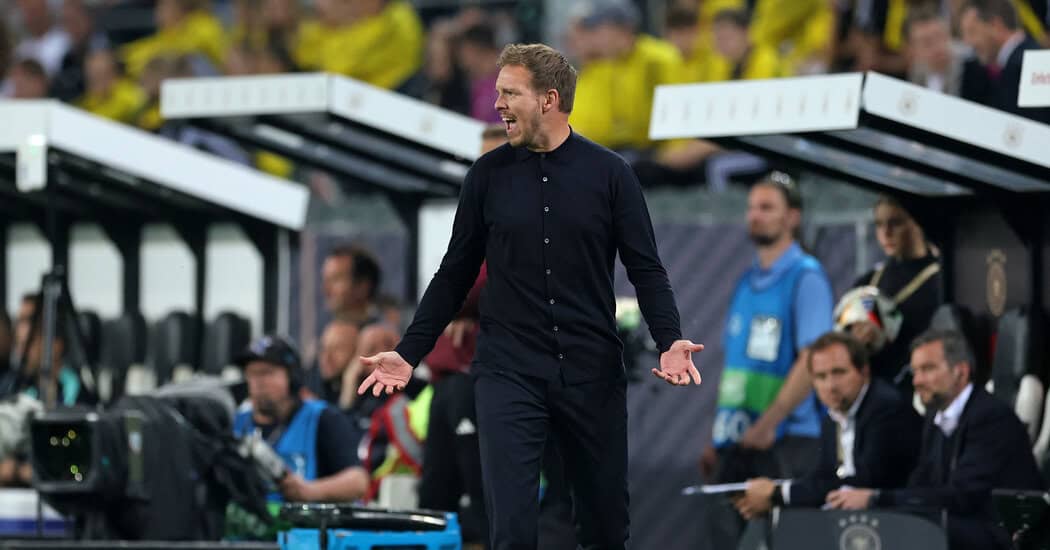
The Most Important Man in Germany This Month Is Its Soccer Coach
A little more than a week before the start of this summer’s European soccer championship, one of Germany’s national broadcasters aired a documentary examining the national team’s history through its multiculturalism. Or, rather, the lack of it.
While the thrust of the film, “Unity and Justice and Diversity,” focused on the progress that Germany had made, it has reverberated inside the country, and beyond, for a very different reason.
In it, the film’s director, Philipp Awounou, included the results of a survey commissioned by the broadcaster, ARD, that asked more than 1,300 people if they agreed with the statement: “I would prefer it if more white players played in the German national team again.” About 21 percent of respondents said that they did.
The backlash was immediate. Joshua Kimmich, a senior member of Germany’s national team, described the survey as racist. The German chancellor, Olaf Scholz, declared, “We will not allow ourselves to be divided.” They, and many others, focused not on the findings but on the decision to ask the question in the first place.
The job of changing the subject over the next few weeks, though, will fall to a figure who, in his own way, represents how the country wishes to see itself. Julian Nagelsmann, the coach of the national team, is passionate, uncompromising and ambitious. He is also 36, by some distance the youngest man to occupy the post. The task on his shoulders is both lofty and unenviable. He has to lead Germany to glory, in one form or another. And he has to try to restore the country’s sense of self at the same time.
Man of the Moment
Alexander Rosen cannot quite recall which newspaper ran the headline, but eight years later, the phrasing still sticks in his mind. He had just appointed a new coach for the team he runs, TSG Hoffenheim, a small but striving club in Germany’s top division.